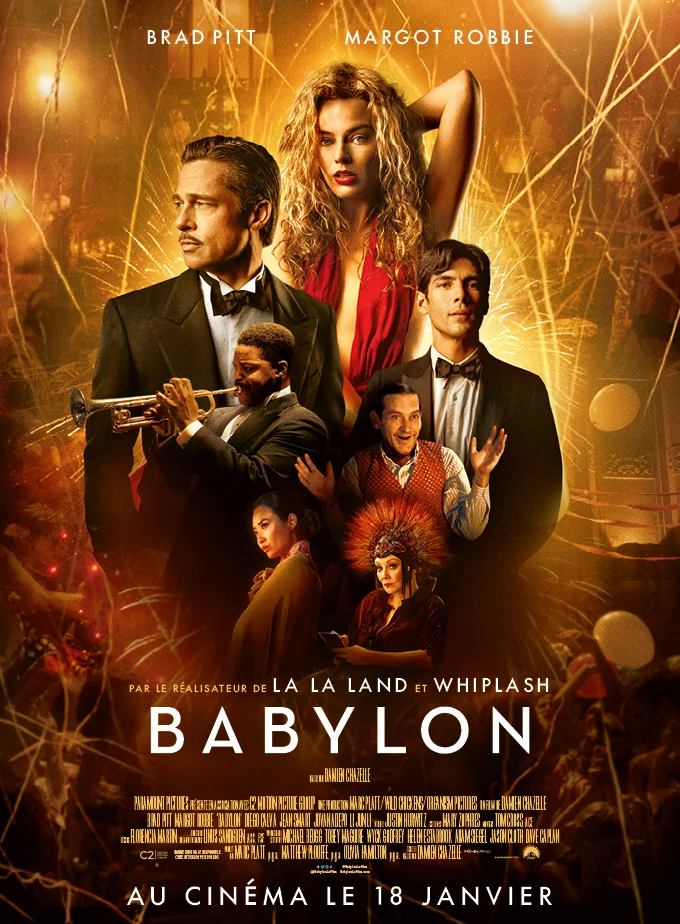
The 1920s saw the appearance of silent film stars but also witnessed their fall into the era of talkies, with a backdrop of excess, excessiveness and demands.
The ancient Mesopotamian city of Babylon was synonymous with abundance, wealth and depravity. Thus, Damien Chazelle’s new feature film, with its eponymous title, plunges us from the outset into a festive and outrageous universe, in the golden age of silent cinema.
An opulent staging
The director of La La Land stages the luxuriant parties of this period mixing all the excesses, sex, drugs to the point of overdose with the help of several sequence shots to better introduce a setting where everything is allowed, enjoyable and even shocking, explanatory basis to the rest of the plot. Like the characters, the spectator does not languish and is willingly carried away by the action as is Nelly LaRoy, an extravagant and ambitious young actress, exceptionally played by Margot Robbie.
The film industry of the time pushed directors to direct actors intensely, Chazelle brings this out, and the pace of the feature keeps accelerating. Chazelle’s use of titles to indicate the time in the first third of Babylon is meant to convey the magnitude of the actors’ work in the heyday of silent film. This intensity finds its paroxysm during a scene of shooting retranscribed where the director demands against all odds to film his sequence before the end of the sunset, to have the best light despite the destruction of some cameras. Thus, his assistant Manuel Torres (Diego Calva) must rush to replace these cameras in time and uses all possible stratagems to achieve his goals.
A direct tribute to cinema
Babylon strives to offer a continuous reflection on cinema and comes close to the metafilm. While Jack Conrad (Brad Pitt) is frightened by his demise, a critic Elinor St. John (Jean Smart) makes him understand, as his career progresses, that he will live on through the big screen. Conversely, Nelly LaRoy and Manuel Torres recognize, from the beginning of the film, the cathartic role of cinema for the public. Moreover, Damien Chazelle is interested in the technical upheavals of sound recording during the transition from silent to talking pictures. The director takes the side of humor here, and chooses excess and excessiveness.
Babylon, an eccentric feature film with saucy shows and huge sets, is thought of as a tribute to cinema, as evidenced by the concluding scenes that bring together several films that have been vectors of progress throughout the ages. The music, signed Justin Hurwitz, takes the viewer into the frenzy of the Roaring Twenties and is such an important part of Damien Chazelle’s work that it has already won the Golden Globes for Best Film Score.

